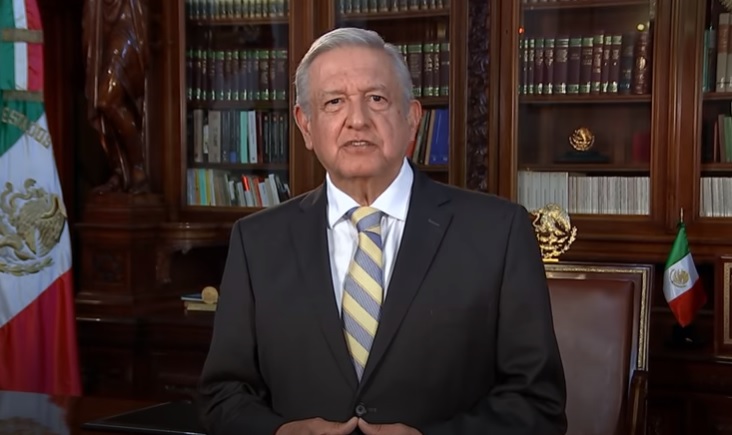Mexico’s president said Friday he won’t fight Mexican drug cartels on U.S. orders, in the clearest explanation yet of his refusal to confront the gangs.
Over the years, President Andrés Manuel López Obrador has laid out various justifications for his “hugs, not bullets” policy of avoiding clashes with the cartels. In the past he has said “You cannot fight violence with violence,” and on other occasions he has argued the government has to address “the causes” of drug cartel violence, ascribing them to poverty or a lack of opportunities.
But on Friday, March 22nd, while discussing his refusal to go after the cartels, he made it clear he viewed it as part of what he called a “Mexico First” policy.
“We are not going to act as policemen for any foreign government,” López Obrador said at his daily news briefing. “Mexico First. Our home comes first.”
López Obrador argued that drugs were a U.S. problem, not a Mexican one. He offered to help limit the flow of drugs into the United States, but only, he said, on humanitarian grounds.
“Of course, we are going to cooperate in fighting drugs, above all because it has become a very sensitive, very sad humanitarian issue because a lot of young people are dying in the United States because of fentanyl,” the president said. Over 70,000 Americans die annually because of synthetic opioids like fentanyl, which are mainly made in Mexico from precursor chemicals smuggled in from China.
López Obrador’s view — like many of his policies — harkens back to the 1970s, a period when many officials believed that Mexican cartels selling drugs to gringos was a U.S. issue, not a Mexican one.
“For decades, past administrations in Mexico have thought the war against drug cartels was a U.S. problem,” said security analyst David Saucedo, noting that Mexican domestic drug consumption, while growing — especially methamphetamines — is still at relatively low levels.
“On the other hand, the drug cartels provide jobs in regions where the Mexican government can’t provide economic development, they encourage social mobility, and generate revenue through drug sales to balance trade and investment deficits.”
López Obrador has argued before against “demonizing” the drug cartels and has encouraged leaders of the Catholic church to try to negotiate peace pacts between warring gangs.
Explaining why he has ordered the army not to attack cartel gunmen, López Obrador said in 2022 “We also take care of the lives of the gang members, they are human beings.”
He has also sometimes appeared not to take the violence issue seriously. In June 2023, he said of one drug gang that had abducted 14 police officers: “I’m going to tell on you to your fathers and grandfathers,” suggesting they should get a good spanking.
Asked about those comments at the time, residents of one town in the western Mexico state of Michoacan who have lived under drug cartel control for years reacted with disgust and disbelief.
San Miguel Times
Newsroom

